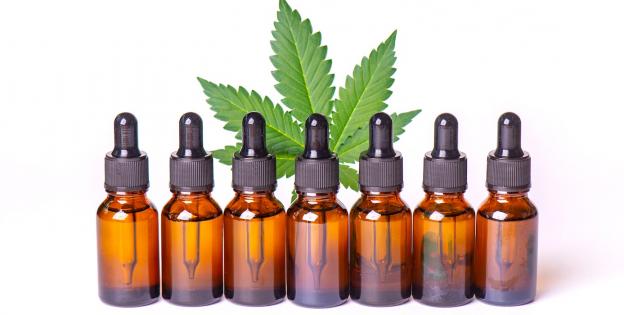- Terpenes are aromatic, organic compounds found in cannabis. They determine the flavour and aroma of each strain and, according to research, they can also affect our mood.
- It is still hard to confirm the truth in this, as scientists face many obstacles in the clinical testing of cannabis, a plant that is still illegal in most countries.
- However, terpenes have become the latest craze in the cannabis industry thanks to the numerous ways in which they can be consumed.

Terpenes can be found in any aromatic plant, including cannabis. They are responsible for the creation of the organoleptic profiles of the different strains that we obtain from marijuana seeds. Each terpene has a different effect on flavour and taste. Some of the most common terpenes found in cannabis include limonene, myrcene, linalool, pinene, humelene, and caryophyllene.
Terpenes are also a key component in essential oils, which are plant concentrates that have been used for centuries. Many cannabis users state that, just like essential oils, cannabis terpenes have both calming and energising properties, can reduce inflammation and improve mental concentration. There is not a lot of research on the effects of terpenes on humans, but some studies suggest that certain genetics show anti-inflammatory and neuroprotective properties.
But it is believed that these compounds interact synergically to create what scientists refer to as the 'entourage effect', which enhances the medicinal properties of the plant's individual components, resulting in a greater, overall medicinal impact.
Around 200 terpenes have been found in cannabis, but only a few appear in significant quantities. These include monoterpenes, diterpenes, and sesquiterpenes. They are characterised by the number of repeating units of a 5-carbon molecule called isoprene, the structural signature of all terpenoid compounds.

The role of terpenes
Terpenes have granted the cannabis plant an evolutionary advantage: some terpenoid oils, for instance, repel insects and herbivores; others prevent the appearance of fungi.
In 2008, the Swiss scientist Jürg Gertsch documented the affinity of beta-caryophyllene for the CB2 receptor, and described it as "a terpene to include in any diet." Beta-caryophyllene is the only known terpene to directly activate a cannabinoid receptor. And this is one of the reasons why vegetables with green leaves are so healthy.
The great variety of terpenes found in marijuana have another important role. Terpenes and CBD alleviate THC's psychoactivity. Thanks to the 'entourage effect', the interaction between cannabinoids and terpenes enhances the beneficial effects of cannabis and also hinders THC-induced anxiety.
What are terpene profiles?
Terpenes have not been in the spotlight until recently, when the growing popularity of extractions has made many users wonder if cannabis aromas can be reproduced in concentrates too.
Many of the purest cannabis extractions have virtually no flavour or aroma, as they only contain isolated cannabinoids, and not terpenes or other elements common in marijuana. So in order to make dabbing more fulfilling, many users started to extract terpenes for then adding them to their smoking pipes.
In the past, cannabis growers succeeded in terpene extraction by placing a cooled condenser between the oven and the recirculation pump. As cannabis extractions were carried out, some of the terpenes were kept as residue. The main issue with this method was that many terpenes were lost in the process.

Therefore, the result was not efficient enough as full terpene profiles were not being obtained. It was not until later that some cannabis companies started to research the terpene spectrum of each strain in detail, and started to perform steam extractions, a much more natural and effective method.
Through steam extraction, the resulting product is an exact copy of a strain's terpene profile, but with a deeper, more intense aroma, as residual elements that interfere with fragrance are disposed of during the process. This is why terpene profiles have been a star product over the last few years, and have conquered everyone's palate.
How can terpene profiles be used?
Terpene profiles improve cannabis products. Some users include them to enhance marijuana's aromas and flavours. The buds of 'cannabis light', for instance, have little aroma, so adding terpene profiles to them can enrich the final product.
Terpenes are also revolutionising the vaping sector as, when added to the renowned 'e-liquids', they provide a much more real experience. The food sector has also welcomed the use of terpene profiles in the production of honey, oil, jam, beer, etc.
Forms of use
1 – Add a few drops to your aromatherapy diffuser or vaporizer. When using a vaporizer, make sure that the temperature is kept low, as terpenes may evaporate if excessively heated.
2 – Terpenes can also be applied topically, although they must always be diluted before application. A few terpene drops can be diluted in vegetable oils, such as coconut oil.
3 – Terpenes can be taken orally but only when these have been specifically approved for this purpose. Make sure you do your research before acquiring them.
Future possibilities
Terpenes are believed to modulate the effects of cannabinoids and have an influence on the therapeutic effects of the different marijuana strains. This means that in the future we might be able to determine which genetics are more effective in the treatment of specific health issues, and what terpenes they have in common in order to elaborate tailor-made profiles for specific complaints and diseases.
These products have undoubtedly entered the market with a bang, announcing a deep transformation within the fast-growing cannabis industry.
----
References:
Terpenes from Forests and Human Health. Kyoung Sang Cho, Young-ran Lim, Kyungho Lee, Jaeseok Lee Jang Ho Lee, Im-Soon Lee. Toxicologal Research, 2017.






Comments from our readers
There are no comments yet. Would you like to be the first?
Leave a comment!Did you like this post?
Your opinion about our seeds is very important to us and can help other users a lot (your email address won't be made public).